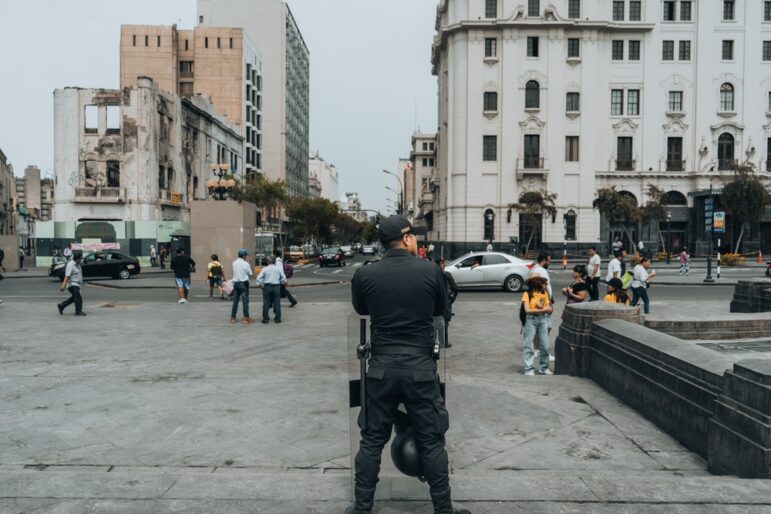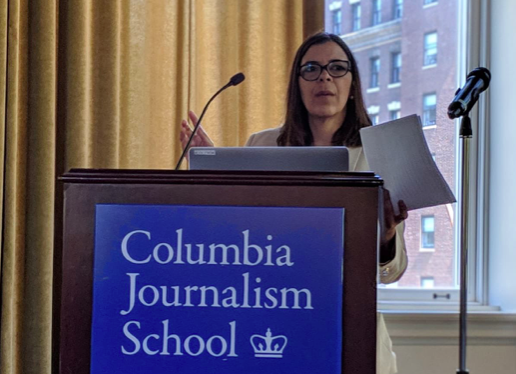

আইডা বি. ওয়েলস ডল। ছবি: ম্যাটেলের সৌজন্যে
Ida B. Wells: Investigative Reporter, Journalism Trailblazer, and Now … Barbie!
Read this article in
It’s not often that the worlds of investigative journalism and Barbies collide. But the latest doll to be released by American toy giant Mattel is none other than Ida B. Wells, a reporter appropriately named by The New York Times as “one of the nation’s most influential journalists.”
Wells, who was born into slavery in 1862, earned a global reputation for her painstaking work documenting the lynchings of African-Americans in the American South in the years after the abolition of slavery.
Wells started her working life as a teacher, before becoming a reporter, and later, the editor and co-owner of the Memphis Free Speech newspaper, a replica of which is seen in the doll’s hands.
While Barbie dolls were once known for being blonde-haired, blue-eyed, and with problematic hip-ankle-waist ratios, the Wells doll is the latest in Mattel’s “Inspiring Women” series, which also features poet Maya Angelou, artist Frida Kahlo, civil rights activist Rosa Parks, jazz singer Ella Fitzgerald, and nurse Florence Nightingale.
The makers created the series to pay tribute to “courageous women who took risks, changed rules, and paved the way for generations of girls to dream bigger than ever before.”
Mattel isn’t the only one celebrating Wells posthumously. Hers was one of the first obituaries featured in The New York Times’ Overlooked series, which sought to redress the imbalance of an archive of death notices dominated by white men. (Wells, the paper noted, had “pioneered reporting techniques that remain central tenets of modern journalism.”)
In 2020, the Pulitzer Prize also awarded Wells a posthumous special citation for her “outstanding and courageous reporting on the horrific and vicious violence against African Americans during the era of lynching.”
Wells is widely seen by fellow journalists as the patron saint of African American muckraking. “The way to right wrongs is to turn the light of truth upon them,” she wrote.
After the 1892 lynching of a close friend in Memphis, Tennessee, she spent several months traveling through the South to uncover eyewitness interviews and family testimonies, and digging up statistics and photographs to investigate lynchings.
Her reporting would see her run out of Memphis, but it would also be the start of a four-decade-long investigation into violent attacks on Black men in the American South. Her findings were published in a series of editorials and later published in the books “Southern Horrors” and “A Red Record.”
“It was death-defying work for a Black woman, who spent months journeying through the Southern states, investigating the lynchings of Black men through records research and in-person interviews — a process that laid the groundwork for modern investigative techniques,” the Poynter Institute’s Barbara Allen wrote in this 2020 profile.
According to Wells’ NYT obituary: “Her goal was to write about Black people for Black people, in a way that was accessible to those who, like her, were born the property of white owners and had much to defend.”
She became a leader in the fight for women’s suffrage, co-founded the National Association of Colored Women’s Clubs and the National Association for the Advancement of Colored People (NAACP). She died in 1931.
Wells’ great-granddaughter, Michelle Duster, an author and historian who worked with the Barbie team on the likeness, said Wells had been “a trailblazer, who courageously followed her convictions and challenged the status quo by fighting for civil rights and women’s suffrage.”
 Laura Dixon is GIJN’s associate editor and a freelance journalist from the UK. She has reported from Colombia, the US, and Mexico, and her work has been published by The Times, The Washington Post, and The Atlantic, among others. She has received reporting fellowships from the International Women’s Media Foundation and the Pulitzer Center for Crisis Reporting.
Laura Dixon is GIJN’s associate editor and a freelance journalist from the UK. She has reported from Colombia, the US, and Mexico, and her work has been published by The Times, The Washington Post, and The Atlantic, among others. She has received reporting fellowships from the International Women’s Media Foundation and the Pulitzer Center for Crisis Reporting.










